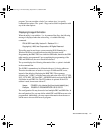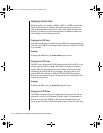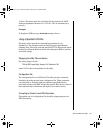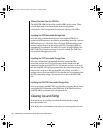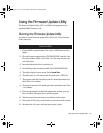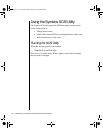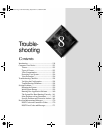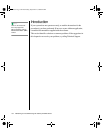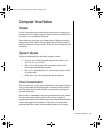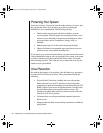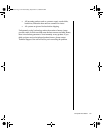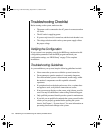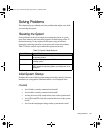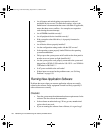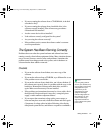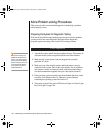
Computer Virus Notice 155
Computer Virus Notice
Viruses
A virus is a program written with malicious intent for the sole purpose of
creating havoc in a computer system. It attaches itself to executable files or
boot sectors, so it can replicate and spread.
Some viruses may only cause your system to beep or display messages or
images on the screen. Other viruses are highly destructive and corrupt or
erase the contents of your files or disks. To be safe, never assume any virus
is harmless.
Types of Viruses
Viruses are identified by how they infect computer systems.
• Program viruses infect executable program files such as .com,
.exe, .ovl, .drv, .sys, and .bin.
• Macro viruses infect macro files of programs such as word
processing and spreadsheet programs.
• Boot viruses attach themselves to a boot record, master boot, FAT,
or partition table.
• Multipartite viruses are both program and boot infectors.
Virus Contamination
There are many ways a virus can spread and infect your system. However, a
virus is inactive until the infected program is executed, or a boot record is
read. Thereafter, the virus loads itself into system memory and begins to
copy and spread itself.
Disks used in a contaminated system can get infected and, in turn, transfer
the virus when used in another system. A virus can also spread via
programs downloaded from bulletin boards or the Internet. Remember that
viruses cannot appear all by themselves. They have to be written, then
spread through direct contact with executable programs or boot sectors.
3424.boo Page 155 Wednesday, September 2, 1998 9:23 AM



